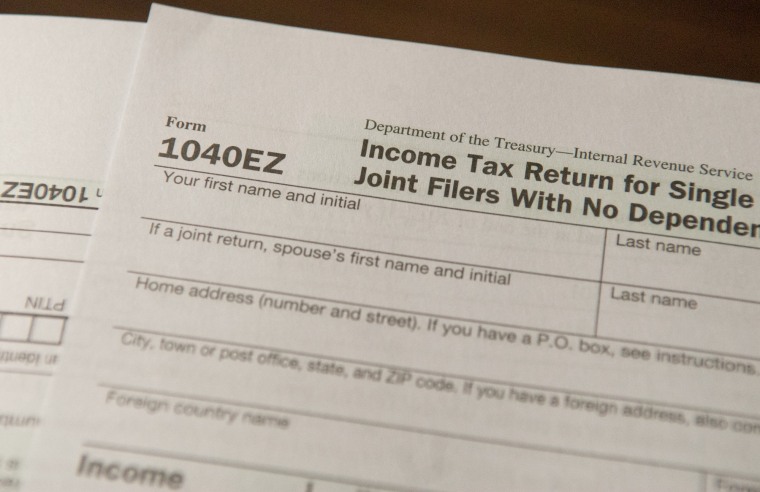Nothing is more rewarding than making a donation to a worthy cause — except, perhaps, donating to a worthy cause and getting a tax deduction for it.
While most donations stem from a desire to make a positive impact, there's no denying that tax deductions are a big incentive—especially among the wealthy.
In a study of high-net-worth philanthropy by Bank of America, about 33 percent of those surveyed said tax benefits were their motivation for giving, and nearly half said they would decrease their charitable giving if tax deductions were eliminated.
However, because there are so many rules and requirements surrounding charitable giving, donors often miss out on the tax benefits they deserve. So before you make another donation, be sure you are up to date on the dos and don'ts of charitable giving to ensure your good intentions are paying off in every way.
Do make sure the organization is tax-exempt. One of the biggest mistakes people make is not making sure they're giving to a qualified organization, said certified financial planner Stephen Aucamp, senior adviser and executive director of the Ultra-High Net Worth Group at Convergent Wealth Advisors.
"I had a situation last year where a client gave several hundred thousand dollars to an organization that she thought was a charitable organization supporting a museum," he said.
Unfortunately, "the person she was donating to hadn't gone through the proper steps to become a qualified charity, so she lost the deduction," he explained.
The Internal Revenue Service has a complete list and searchable database of tax-exempt charities on its website.
Do have your paperwork in order. If you're planning to deduct a donation, you need proof, such as a receipt, canceled check or acknowledgment letter from the charity. For text-message donations, you'll need the phone bill with the organization's name, contribution amount and date; for donations deducted from your paycheck, you'll need your pay stub and donor pledge card showing proof of your gift.
If you are donating an item worth more than $5,000, you'll also need a letter from a qualified appraiser valuing the property.
For all deductions, you must file a Form 40 with the IRS and itemize your deductions on Schedule A. If your non-cash donations exceed $500, or if you're donating items worth more than $5,000, you'll need to include IRS Form 8283, as well.
Do understand what counts as a donation. You're only making a donation if you're not getting anything of equal value in return. This is particularly relevant when it comes to charity dinners and auctions.
In the case of charity dinners, you can only deduct the difference between what you paid for the meal and its fair market value, according to Carol Kroch, managing director for wealth and philanthropic planning with Wilmington Trust.
If you paid $100 and the meal is valued at $100, you haven't actually made a donation.
The same is true with charitable auction items, she said. If you buy a $500 painting that's valued by the charity at $500, there is nothing to deduct. However, if the painting is valued at $300 and you pay $500, then you've made a $200 deductible gift. Raffle tickets are never tax-deductible.
Do run the numbers. "Before you make a contribution of something large, you want to have a plan," said Kroch, adding that your yearly tax savings will depend on a combination of factors, including your adjusted gross income, the type and value of your donations, whether you're subject to the alternative minimum tax and the type of charity to which you're donating.
Additionally, she said, a phase-out of itemized deductions was reinstated in 2013 for taxpayers with higher adjusted gross income. Depending on your income and other deductions, your charitable deductions may be reduced, which is why you need to have a plan that will allow you to optimize your deductions.
Don't assume cash is best. While donating cash is easy, it's not always the most tax-advantageous way of giving.
"People often get an idea to donate but don't clearly think through a plan of what's the best asset to donate," said Donald Tharp, certified financial planner and president of Hudson Financial Advisors.
One common mistake, he said, is selling low cost-basis stocks and then donating the cash. When you sell the security, you have to pay capital gains taxes of 20 percent and the new 3.8 percent Medicare surtax on net investment income—depending on your adjusted gross income. After taxes, you're left with a smaller donation and a smaller deduction.
It's often better to donate the security, let the charity sell it tax-free, and get your full deduction. You can do this as long as you have held the security for at least one year.
If you have a piece of appreciated real estate, it's often advantageous to donate it rather than selling it and donating the cash.
Don't assume all property is treated equally. Tax laws are incredibly complicated, particularly when it comes to giving big gifts. The rules differ, depending on what you're donating: There are special rules for clothing and household items, used motor vehicles, artwork and even taxidermy.
That's why it's important to know exactly what you're doing before attempting to make a donation.
Artwork, for instance, is particularly tricky. According to Aucamp, it's possible to benefit tax-wise by donating art, "but the regulations have gotten stricter and are pretty complex."
"You have to dot your i's and cross your t's or you'll lose your deduction," he added. "Often, clients will not get the outcome that they want unless they are willing to spend a lot of money to do it right. … So you really need a good adviser who can navigate the complexities."
